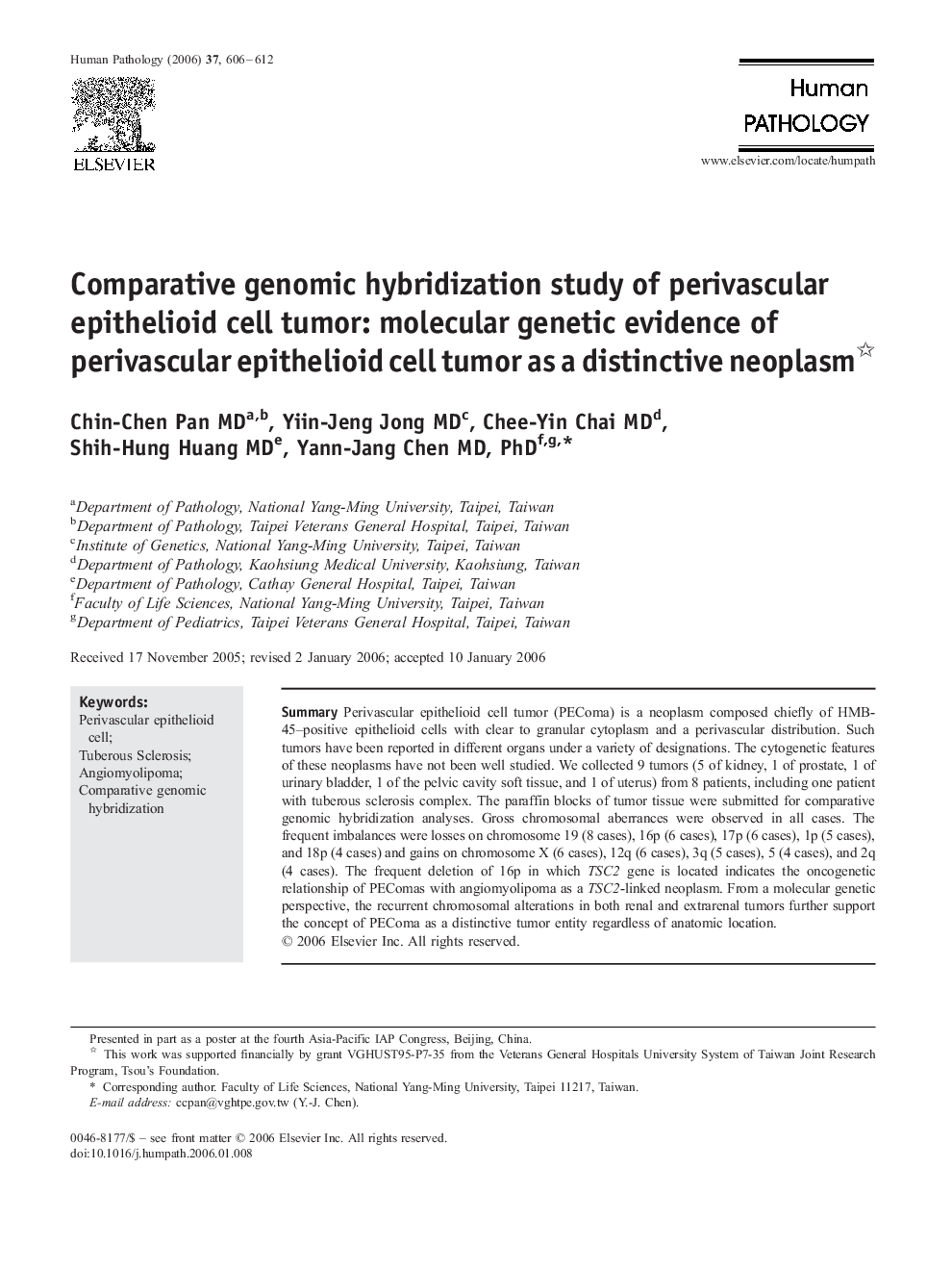| Article ID | Journal | Published Year | Pages | File Type |
|---|---|---|---|---|
| 4135254 | Human Pathology | 2006 | 7 Pages |
SummaryPerivascular epithelioid cell tumor (PEComa) is a neoplasm composed chiefly of HMB-45–positive epithelioid cells with clear to granular cytoplasm and a perivascular distribution. Such tumors have been reported in different organs under a variety of designations. The cytogenetic features of these neoplasms have not been well studied. We collected 9 tumors (5 of kidney, 1 of prostate, 1 of urinary bladder, 1 of the pelvic cavity soft tissue, and 1 of uterus) from 8 patients, including one patient with tuberous sclerosis complex. The paraffin blocks of tumor tissue were submitted for comparative genomic hybridization analyses. Gross chromosomal aberrances were observed in all cases. The frequent imbalances were losses on chromosome 19 (8 cases), 16p (6 cases), 17p (6 cases), 1p (5 cases), and 18p (4 cases) and gains on chromosome X (6 cases), 12q (6 cases), 3q (5 cases), 5 (4 cases), and 2q (4 cases). The frequent deletion of 16p in which TSC2 gene is located indicates the oncogenetic relationship of PEComas with angiomyolipoma as a TSC2-linked neoplasm. From a molecular genetic perspective, the recurrent chromosomal alterations in both renal and extrarenal tumors further support the concept of PEComa as a distinctive tumor entity regardless of anatomic location.
